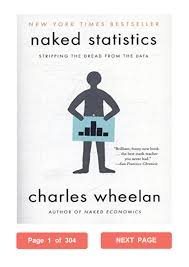Musings & Links
Today I just want to muse briefly on a few items and pass along some links that I think are very interesting.
The last few weeks I have been studying mental models. I think that mental models are key for being able to deal with today’s complex world. It is depressingly obvious to me that many people just don’t have any of these tools in their mental toolbox for helping cope with today’s world. Not to mention any politicians by name (I’ll do that in a separate post).
Most of what I am studying came from the Farnam Street blog and one of their guests Prof. Scott Page from the University of Michigan. I have included the link for an interview with him.
Professor Page also offers an on-line course through Coursera (free if you don’t want the certificate) for Model Thinking. I have just started it. Seems like a really good course. But certainly information dense. 😊. He also has book called Model Thinking which I have purchased and am working my way through at the moment.
I am working on a presentation of approximately 120 different types of mental models. Since I am taking the Model Thinking course, I will wait until I complete it in order to integrate information from there into the presentation. The rest of the models came from the FS blog along with a few that I think are pertinent. In a few weeks, when I have finished the PowerPoint presentation, I will upload it here in a blog post dedicated to mental modeling.
To put it briefly, mental models are a way of being able to frame the complex world that we live in, into one or several models that help clarify a situation, and thus help us deal with it in one way or another.
Understanding these models is certainly a way to help the able to wrap your head around the complexity that permeates the modern world. Many situations will not resolve with just one model. You may need to have a variety of models in your toolbox so that you can apply different models to different portions of the situation.
A good example of models that one might use to help interpret complex situations would be those of probabilistic thinking. That is, thinking in terms of probabilistic models, such as normal distribution, probabilities, standard deviations, etc., to evaluate situations. I’m not saying that one needs to be a statistician or a mathematician to be able to do this, but I would consider a basic knowledge of statistics to be an essential survival skill in the world today.
I was reading a book called “Naked Statistics” by Charles Wheelan. [Excellent book – well written]. He makes an amusing point that, at least in the United States, he would regularly talk to students who professed to understand nothing about statistics, that found them extremely confusing and difficult, but yet, as soon as they were outside the classroom, had no problem in using all sorts of statistical terms related to whatever sport they happen to follow. So, I am personally convinced that almost anybody should be able to grasp statistics. And in fact, a little bit of thought would reveal that most people probably use statistics almost every single day. “Is it going to rain? Should I take my umbrella?”, “It’s rush hour. How likely is it that I will be able to find a taxi?”, “The new model Apple iPhone just came out. What is the probability there will be a huge line at the Apple Store?”, Etc.
However, it would be impossible for any one person to be an expert on all the models. For complex issues (economics, epidemics, politics, etc.), it would be a prerequisite that you have a group of people who have a broad range of models between them to help look at complex situations to help resolve them.
I knew some of this. But certainly not all. Not even close. But I knew enough that when I read and researched models just a little bit, that I realized it would be well worthwhile pursuing this.
I have inserted a link for the FS interview with Scott Page. Although long, really good stuff. I have to admit I increase the speed on the interview to 1.2 times the regular speed. But still an excellent interview.
Other items. I think this link from the BBC on diets that are costing people lives is very interesting.
https://www.bbc.co.uk/news/health-47734296
A new podcast that I found via NPR. It is called ThroughLine. Well worth listening to. Although some parts of it are little stressful to listen to, the foundation of the podcast is excellent. It looks at the historical roots behind many of today’s current crises. The one about Putin, and the current border issues with Mexico are quite interesting. The one about the U.S. – Iran conflict was a real eye-opener for me. All worth taking time to listen to.
https://www.npr.org/podcasts/510333/throughline
Also, along the lines of history. Discovered this just the other day. Very nice series of podcasts.
https://www.missedinhistory.com/
Completely coincidentally, just today, I saw this article on the Art of Manliness about not being responsible for other people’s feelings. Always been one of my weakest points. Now if I can only read it several times and take it to heart. 😊
I listened to another podcast on the FS Blog, an interview with the CEO of Basecamp. Basecamp is a software company that provides an integrated project management and communication service. I was impressed not only by the approach of the CEO, but also with the software itself, including its pricing model. I am looking at it with the idea of broaching it to various operations in Asia. I think it might really be a very efficient and cost-effective way of communication and project management. Heavy sigh. The least efficient part of this process will be attempting to get it through people’s heads that this is a good way to go.
And from the mouths of 13 year olds …
https://www.npr.org/sections/money/2018/09/26/651948323/episode-866-modern-monetary-theory
One of my favorite podcasts from the Practical Stoic.
https://www.britannica.com/biography/William-Hazlitt - I discovered him recently. His quotes are very much to my taste.
Chinese American writer - What a great quote
“To me success means effectiveness in the world, that I am able to carry my ideas and values into the world—that I am able to change it in positive ways. ”
““The love of liberty is the love of others; the love of power is the love of ourselves.” ”
And if the above quote isn’t a succinct commentary on any modern politician, I don’t know what is.
Happy reading. Hope to hear feedback 😊 …



